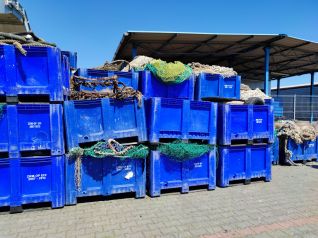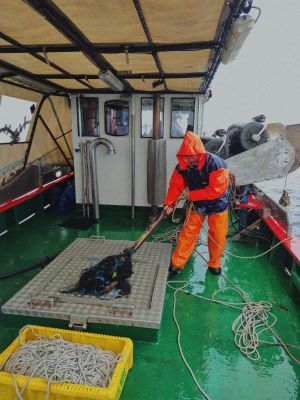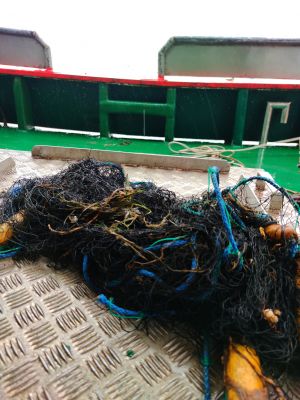I love the Baltic, Clean Baltic: the Sea Fishermen's Association project comes to an end
According to the HELCOM Marine Litter Action Plan , derelict fishing nets (colloquially named "ghost nets") is a "term referring to both commercial and recreational fishing gear that has been abandoned, lost or otherwise introduced into the marine environment in as a result, they have a negative effect on them, for example through unintentional fishing, accumulation in areas of sensitive habitats or degradation to the microplastics fraction that can directly enter the food chain”.
The negative impact of lost or abandoned fishing gear on the marine environment increased significantly in the second half of the 20th century, when the fishing industry around the world started to use synthetic fibres for the production of ropes, nets and other fishing equipment.
Once lost, fishing gears made of synthetic fibres remain in the marine environment for decades and have a negative impact on the ecosystem, not only through uncontrolled catches of fish and endangered species, but also as an extremely dangerous waste, made of synthetic fibres of high resistance. Their fragmentation into smaller plastic particles as a result of such external factors as sunlight, currents or mechanical damage lasts up to 600 years.
However, today we know that such fragmentation does not solve the problem. Plastics are not biodegradable, but only brake into smaller and smaller particles, called microplastics or nanoplastics. Once introduced into the marine environment, plastic particles never disappear, and in the form of smaller bits they are even more dangerous for living marine organisms, which digest them with food.
The project "I love the Baltic, Clean Baltic", completed in August 2020, carried out by the Sea Fishermen's Association - Producers Organization is an example of an action aimed at reducing the negative effects of fishing activities on the Baltic Sea ecosystem.
The project was carried out in the Puck Bay, around the Hel Peninsula and in the coastal waters of the Baltic Sea by 132 fishing vessels. The aim of the project was to clean the Baltic of marine litter and to increase the awareness of the society and sea users about abandoned fishing nets and their impact on the environment.
In the framework of the project, over 40 tonnes of marine litter were removed, mostly composed of static nets .





